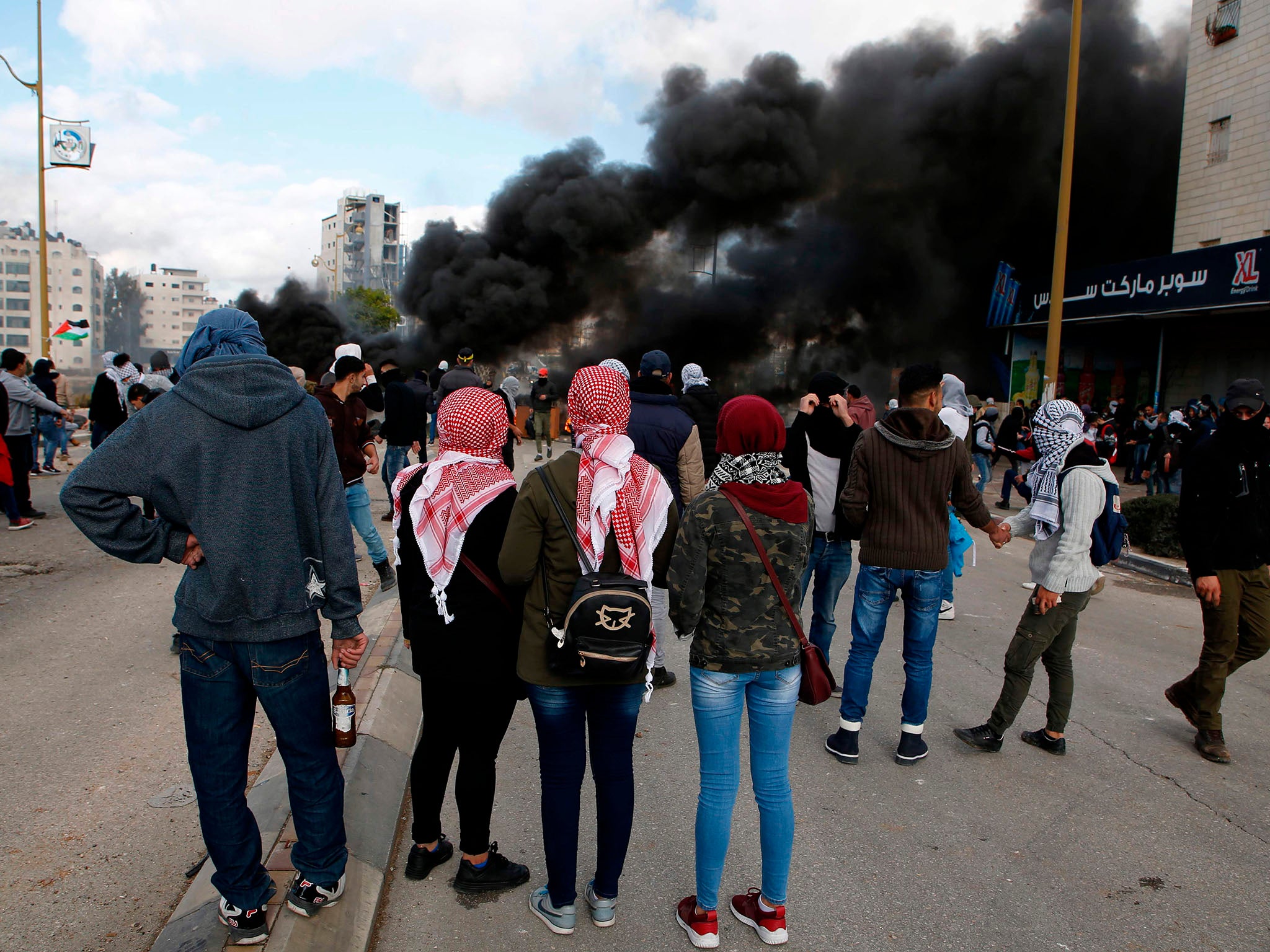Narendra Modi is visiting the Occupied Territories this week – here's why Palestinians shouldn't embrace him
India buys 41 per cent of total Israeli arms exports – so, while many will say his visit to Ramallah is a historic moment, it’s worth Palestinians making sure they stay on the right side of history

Your support helps us to tell the story
From reproductive rights to climate change to Big Tech, The Independent is on the ground when the story is developing. Whether it's investigating the financials of Elon Musk's pro-Trump PAC or producing our latest documentary, 'The A Word', which shines a light on the American women fighting for reproductive rights, we know how important it is to parse out the facts from the messaging.
At such a critical moment in US history, we need reporters on the ground. Your donation allows us to keep sending journalists to speak to both sides of the story.
The Independent is trusted by Americans across the entire political spectrum. And unlike many other quality news outlets, we choose not to lock Americans out of our reporting and analysis with paywalls. We believe quality journalism should be available to everyone, paid for by those who can afford it.
Your support makes all the difference.In an interview on Voice of Palestine radio station recently, Majid Khalidi, an adviser to Palestinian President Mahmoud Abbas, announced the visit of India’s Prime Minister Narendra Modi to the occupied Palestinian territories this weekend. Alongside a tour to Yasser Arafat Museum in Ramallah to honour the late Palestinian leader, the Prime Minister is expected to discuss issues related to information technology, tourism and health during this brief stopover on the broader Middle East tour.
Modi’s upcoming visit to Ramallah, a first for an Indian premier, is being hailed as historic by his Palestinian hosts. However, a closer scrutiny of New Delhi’s ties with Israel along with India’s own record of military control in places like Kashmir reveals an entirely different picture.
During the years preceding India’s independence, Indian nationalist leaders expressed regular solidarity for the Palestinian cause and viewed both the British mandate rule as well as the Israeli incursion into Palestinian territories from an anti-imperial perspective. Gandhi, in a 1938 article, wrote that Jewish settlements in Palestinian territories were “inhumane”.
This anti-colonial idealism largely guided India’s policy towards Israel and the Palestinian territories post-independence until New Delhi established full diplomatic relations with Israel in 1992. During the 1999 Kargil war with Pakistan, facing sanctions from United States for the previous year’s Pokhran-II nuclear tests, India swiftly turned to Israel for arms supplies. Since then, India has gradually become Israel’s largest defence customer. According to the Stockholm International Peace Research Institute (SIPRI), between 2012 and 2016, India bought 41 per cent of total Israeli arms exports.
The massive arms trade between Israel and India, complemented by growing cultural and economic exchanges between the two countries, not only aids the maintenance and legitimisation of Israel’s brutal military occupation of Palestinian territories but also undermines grassroots Palestinian dissent including the already strained Boycott Divestment and Sanctions (BDS) movement.
Under Modi’s rule, New Delhi has sharply inclined towards Israel. The heads of both states are often seen heaping praise upon each other in the press and Modi recently became the first Indian prime minister to visit the country. Flanked by Netanyahu, the Indian premier was given an extensive tour of Mount Herzl in Jerusalem, the site where Theodor Herzl, the founder of modern political Zionism, lies buried.
Modi was formerly a worker at Rashtriya Swayamsevak Sangh (RSS) – a Hindu nationalist paramilitary group that regards India as an exclusive homeland for Hindus and deems minorities (especially Muslims) as outsiders. Vinayak Damodar Savarkar, one of the most outspoken ideologues of RSS, while calling the Indian nationalist leaders’ solidarity for Palestinians a consequence of “vicious Muslim propaganda”, once declared that the “whole [of] Palestine ought to be restored to Jews”.
While India voted in favour of the UN General Assembly resolution opposing Washington’s unilateral recognition of Jerusalem as the Israeli capital, the move ought to be attributed to New Delhi’s vital energy and economic interests in the Arab world, particularly the Gulf region. India’s total trade with the Middle East in 2016 amounted to a staggering $121bn (£87bn), of which Israel accounted for less than 1 per cent.
Besides, India, itself complicit in perpetuating a pervasive military rule over the disputed region of Kashmir, holds no moral legitimacy to express solidarity for the Palestinians under Israeli occupation. Accused of committing systematic human rights abuses, India has deployed over 700,000 troops in the tiny valley to crush demands for secession expressed by the local population through a sustained armed rebellion and regular popular uprisings.
The Indian army and paramilitaries occupy more than 1500 square kilometres of land in Kashmir, a territory three times larger than total municipal jurisdictional areas held by settlers in the occupied West Bank. Israeli army delegations often visit Kashmir to exchange crowd control, counterinsurgency and surveillance expertise with Indian forces.
Moreover, Kashmiris, in the face of brutal police and paramilitary assaults, are often seen mobilising in support of the Palestinian cause. In 2014, when tens of countries witnessed protests against Israeli bombardment in Gaza, Indian forces shot dead a teenager during one such demonstration. More recently, Kashmir erupted in protest to oppose Trump’s Jerusalem move.
Modi’s visit to the Occupied Territories is a litmus test for the Palestinians to replicate this grassroots solidarity and an opportunity to, once again, be on the right side of history. Embracing Modi for narrow political interests will end up not only harming the international camaraderie that Palestinians have garnered through the past few decades but also contravening the ideals that have long underpinned the Palestinian struggle for justice.
Join our commenting forum
Join thought-provoking conversations, follow other Independent readers and see their replies
Comments